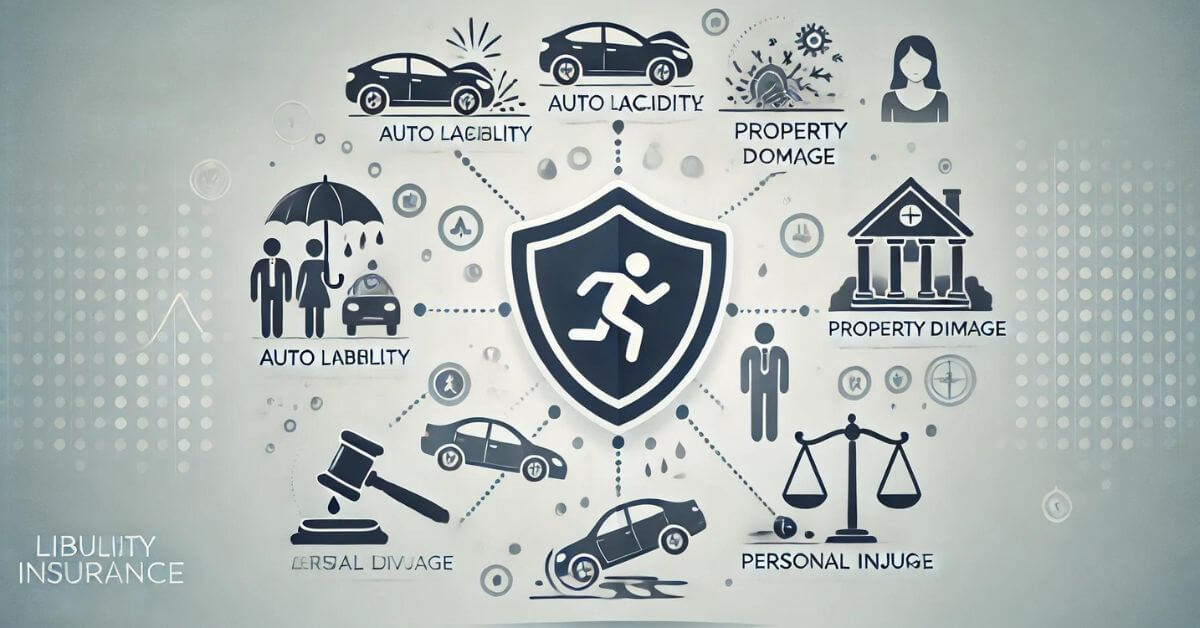What Does Liability Insurance Cover? A Complete Guide
Liability insurance is a critical part of financial protection, whether you’re a business owner, homeowner, or simply driving a car. But what exactly does liability insurance cover? In this guide, we’ll break down the various types of liability insurance and explain what situations they cover to give you a clearer understanding.
What Is Liability Insurance?
Liability insurance is designed to protect you or your business from the financial burden of claims made by others for injuries or property damage caused by your actions. Instead of paying for the damages out of pocket, liability insurance helps cover the costs, including legal fees, medical bills, and settlement amounts.
Read more: Does Progressive Have Auto Pay for Renters Insurance?
There are different types of liability insurance policies, each covering different scenarios. Let’s explore the most common ones:
1. General Liability Insurance
General liability insurance is essential for businesses. It covers claims of bodily injury, property damage, and personal injury (such as slander or libel) made by third parties.
What Does General Liability Insurance Cover?
- Bodily Injury: If a customer slips and falls in your store, for example, general liability insurance will cover their medical expenses and potential legal fees.
- Property Damage: If your business accidentally damages a client’s property, this insurance can cover repair or replacement costs.
- Personal Injury: Claims related to defamation, slander, or copyright infringement fall under this umbrella.
2. Professional Liability Insurance
Also known as Errors and Omissions (E&O) insurance, professional liability insurance covers professionals like doctors, lawyers, and consultants when clients claim negligence or inadequate service.
What Does Professional Liability Insurance Cover?
- Negligence: If a client suffers financial loss because you provided inaccurate advice, professional liability insurance will cover legal defense and any potential damages.
- Errors or Omissions: If you make a mistake or forget a critical step in a project, this insurance will cover claims arising from that error.
3. Auto Liability Insurance
Auto liability insurance is mandatory in most states for car owners. It covers damages and injuries to others if you’re at fault in a car accident.
What Does Auto Liability Insurance Cover?
- Bodily Injury: This covers medical expenses, lost wages, and legal costs if another person is injured in a car accident you caused.
- Property Damage: If you damage another vehicle or someone’s property, such as a fence or mailbox, this part of the insurance will cover repairs.
4. Employer’s Liability Insurance
If you’re a business owner with employees, Employer’s Liability Insurance is often bundled with workers’ compensation policies to protect you if an employee sues for injuries sustained on the job.
What Does Employer’s Liability Insurance Cover?
- Workplace Injuries: If an employee is injured at work and decides to sue, this insurance covers your legal costs and any potential settlement.
- Illness Claims: If an employee claims that their illness is a result of working conditions at your company, employer’s liability insurance can cover the medical expenses and lawsuit costs.
5. Umbrella Liability Insurance
An umbrella policy offers extra liability coverage when the limits of your existing policies (like home, auto, or general liability) are exhausted. It’s an additional layer of protection that kicks in when you face particularly high-cost claims.
What Does Umbrella Liability Insurance Cover?
- Excess Costs: If a claim exceeds the limits of your primary insurance, umbrella liability insurance steps in to cover the additional costs.
- Additional Coverage: Some umbrella policies may also cover things like libel, slander, or invasion of privacy, which aren’t typically covered under standard policies.
Why Is Liability Insurance Important?
Accidents happen, and when they do, the financial consequences can be severe. Liability insurance protects you from the potentially devastating costs of lawsuits, medical bills, and property damage claims. Without it, you could be personally responsible for these expenses, which can quickly lead to financial ruin.
Whether you’re a business owner, a homeowner, or just someone driving a car, having the right liability insurance coverage is crucial. It not only gives you peace of mind but also protects your financial future.
What Does Liability Insurance NOT Cover?
While liability insurance covers a wide range of risks, it doesn’t protect you from everything. Here are a few things typically not covered by liability insurance:
- Intentional Harm: If you or an employee intentionally harm someone or their property, insurance will not cover the claim.
- Criminal Acts: Illegal activities are not covered by any form of liability insurance.
- Contractual Liabilities: If you fail to meet the terms of a contract, this is not typically covered by liability insurance unless it falls under the “errors or omissions” section of a professional liability policy.
- Personal Property: Liability insurance does not cover damage to your own property, whether it’s personal or business-related. Separate coverage is needed for that.
Conclusion
Liability insurance is a necessary safeguard in today’s world, whether for personal, professional, or business purposes. Understanding what it covers—and what it doesn’t—can help you choose the right type of insurance for your needs. Make sure to assess the risks in your daily activities or business operations to ensure you have adequate coverage.
With the right liability insurance in place, you can rest easier knowing that, should the unexpected happen, you’re financially protected.
By understanding what liability insurance covers and securing the appropriate coverage for your unique situation, you’ll be better prepared to handle any unforeseen events that come your way.
